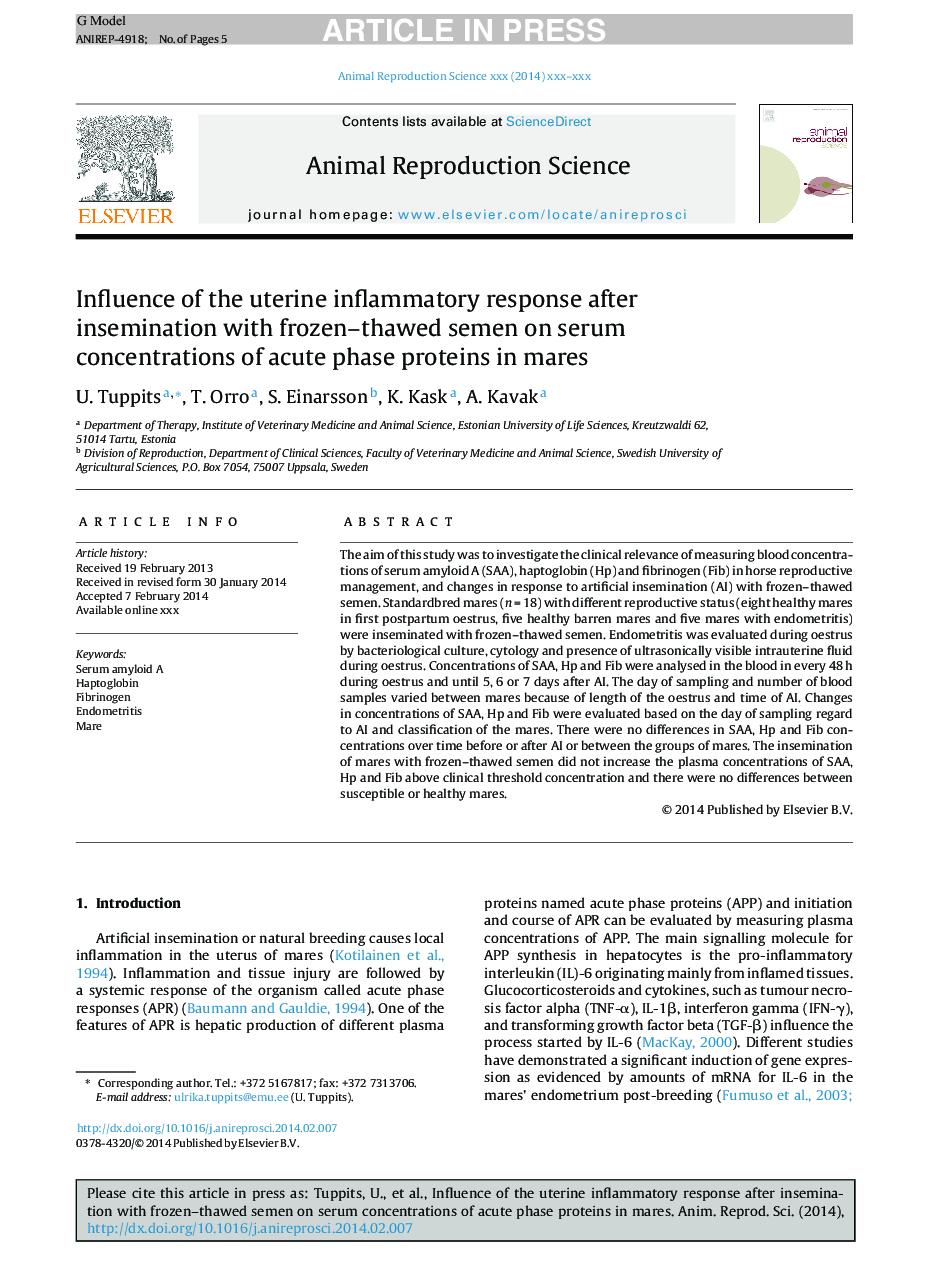| Article ID | Journal | Published Year | Pages | File Type |
|---|---|---|---|---|
| 8404911 | Animal Reproduction Science | 2014 | 5 Pages |
Abstract
The aim of this study was to investigate the clinical relevance of measuring blood concentrations of serum amyloid A (SAA), haptoglobin (Hp) and fibrinogen (Fib) in horse reproductive management, and changes in response to artificial insemination (AI) with frozen-thawed semen. Standardbred mares (n = 18) with different reproductive status (eight healthy mares in first postpartum oestrus, five healthy barren mares and five mares with endometritis) were inseminated with frozen-thawed semen. Endometritis was evaluated during oestrus by bacteriological culture, cytology and presence of ultrasonically visible intrauterine fluid during oestrus. Concentrations of SAA, Hp and Fib were analysed in the blood in every 48 h during oestrus and until 5, 6 or 7 days after AI. The day of sampling and number of blood samples varied between mares because of length of the oestrus and time of AI. Changes in concentrations of SAA, Hp and Fib were evaluated based on the day of sampling regard to AI and classification of the mares. There were no differences in SAA, Hp and Fib concentrations over time before or after AI or between the groups of mares. The insemination of mares with frozen-thawed semen did not increase the plasma concentrations of SAA, Hp and Fib above clinical threshold concentration and there were no differences between susceptible or healthy mares.
Related Topics
Life Sciences
Agricultural and Biological Sciences
Animal Science and Zoology
Authors
U. Tuppits, T. Orro, S. Einarsson, K. Kask, A. Kavak,
